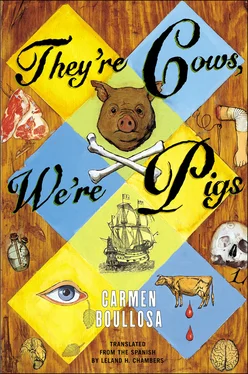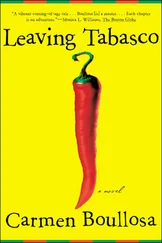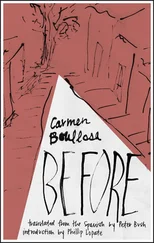Resuming our progress was not difficult, by dint of working the ship. Thanks to the fact that the tempest had never wakened to its whole fury, we had managed to keep our anchors, the tackle, the sails, and all the small boats.
The weather being fair as far as the Tropic of Cancer, it was very favorable to us from there on, which gave us much joy, since we were in dire need of water, so much so that we were now rationed to four gills a day. The thirst was even hurting our eyes; if the men had had any need of tears during this time in order to relieve their despair, as in the middle of the storm, they would have found none at all, their eyes being altogether dry from such thirst. On four gills a day and a diet of salt meat, how would even the little water necessary for shedding tears ever reach the eyes? Not a single drop of water did they get.…
And it was then that one of the strongest and most robust sailors took sick, his gums so swelled up it was impossible to see his teeth. The barber having bled them, a black liquid was all that came out. Once bled, the swelling went down, but in a few days the sailor was left without a tooth, not a single molar or eyetooth. He groaned aloud, at the top of his voice, “Four molars I used to have there, for in all my life I never had a tooth or grinder pulled nor has any fallen out or been eaten away by abscess or decay!”
His complaint merely concealed another that was more gloomy. He already knew the outcome of his illness, for he had the scurvy. Yet to come was the awful swelling of his limbs amid the most horrible pain, the barber bleeding them again and removing some fetid liquid, and then, inexorably, death.
Approaching Barbuda, an English corsair tried to give chase, but as soon as he saw he had no advantage over us, he drew off. We sought to give chase then ourselves, but unable to reach him, we returned to our course.
We passed within sight of Puerto Rico, a pleasant island garnished with leafy trees and underbrush right up to the peaks of its mountains. We also saw the island of Hispaniola and I understood, with panic and grief — even though I also longed for it — that we were on the verge of reaching our destination.
Thirty-five days after weighing anchor, on June 7, 1666, without having lost a man on the voyage (the man sick with scurvy and now toothless, with both arms swollen and bled, was yet alive), we dropped anchor off the island of Tortuga.

My arrival on the island of Tortuga was cloaked in a veil that clung wantonly to my body and my soul, numbing me to everything, and that I would do no wrong to call disillusionment . So hastily did they get those of us who were indentured to the Company on deck, and loaded down with bundles, like true ants, that there was no time to get an idea of the island from there, nothing could I see of the place to which I had come.
The moment we set foot on dry land, a foreman awaited who hurriedly divided us into fast-moving, orderly squads under the command of youths of our own age, although self-assured colonists of Tortuga already (or so they seemed to me then, but later on I realized that if they were doing work of that sort, it was only because they were so slow to catch on), who led us immediately to the places where we would sleep and eat: huge sheds that imitated the structures of the natives in having no paint or decoration, nor any furniture, and that benumbed my eyes like empty hulks of gloomy barrenness in which I was unable to see any alleviating quality, roasting me with a heat I thought inexplicable and that only with the passing of time would I accept as the natural temperature, though always unbearable and all the more accentuated by the anguish of not knowing where she had ended up (and which this kind of climate made all the worse), whether in some nearby shed or, something I sensed and feared, on some other island, a likelihood I was not long in substantiating because I did not see her anywhere. I was not certain then if I really wanted to have reached Tortuga or if I wanted the voyage never to end. I had been defending myself against the pains of love by seeing her, and the perfect picture of unhappiness consisted in seeing her no longer.
On the other hand, I still was not aware of the prohibition against women that she already knew about for certain: women could not live on Tortuga. Though daring enough to travel as a man, she did not appear ready to live forever behind a mask, which she had betrayed at least once during those thirty-five days with the confidence that I know she needed to divulge so that perhaps just one person in the whole immensity of the ocean would be aware that she was a woman; and thus it was impossible to think she would have been able to remain permanently hidden as a woman without needing to betray her intention if she stayed on the island.
At dawn the following day they took us to the fields to work: some of us to harvest coffee, tobacco, or cassava root, others to the packing sheds, to move things about, to work in the houses of the Company dignitaries. What fell to me in the way of harvesting tells me nothing; the assignment must have lasted only a few days, not enough to learn what the foreman tried by force to inflict on my body dulled by melancholy, by the seasickness that had as yet not gone away, and the weariness of spending my nights thinking of her, still enveloped by the veil mentioned a few lines back, the one I called disillusionment , but which the bizarre quality of the climate, always heavy with the sun that exacerbates the cruelty in the hearts of men, would turn into something else; because everything changes on Tortuga, so that it took me days to discover that if I avoided always being under the direct rays of the sun the heat became more bearable, months to learn so wisely to keep my eyelids half closed so the sun would not blind me, and years to discover the appropriate movements of my mind in order that Tortuga would not get away from me in its continual shifting from shape to shape, insistent and imprecise. The very features of the island were bizarre, jagged, like the songs I heard in the nights: rhythms that I never imagined existed, insane, crazy rhythms, black as the skin of those who unleashed them, and that made me feel ashamed in our first encounters, that I never wanted to listen to, and that, were it not the custom among the Brethren of the Coast not to forbid anything that might appeal to others even though their tastes were disagreeable or irritating to us, I would have said it was necessary to prohibit for the general well-being of our spirits and the growth of our minds. Because the sounds they produced with the palms of their hands and other parts of their bodies, and with skins stretched over frames or wooden boxes, forever striking them until producing the feverish image of what is only possible when bodies are rubbing together in the black ceremony of the flesh, cannot join with anything great or noble nor establish the basis of any other world that is not that of an assault or the desperateness that is so eager for an assault, as happened with us who remained walled in by the violence with which we lived.… But let us suppose we were able to prohibit such harmful rhythms. Would we have been able to prohibit the climate and the countenance of Tortuga? Because it was not only the music that fermented our hearts and prepared our bodies, whetting our thirst for raids, for violence and profligacy … We were also influenced by the plentiful trees that, all over the rocky, sheer terrain of the mountainous island, so abundant with crags, sent out their roots over the rocks and entwined themselves together without reentering the earth, bare and twisted together like ivy branches against a wall; and by the steep cliffs pocked with shallow grottoes which, along with the fringes of sand here and there, ring the island.… The natural aspect of the island is so peculiar that the translucent waters of those seas lose their transparency as they approach the island, which makes me think that the harshness of its climate perhaps must set them to boiling, since they add no refreshing quality to the burning air; just as the exposed tree roots do not wish to bury themselves in the rocks, as if it were the harshness of the climate that prevents them from doing so, and therefore, giving the lie to their nature as roots, they prefer to remain out in the open, although the air howls searingly all around them, rather than sink into the even more awful heat of the earth. Boiled, burned, cooked by its climate, Tortuga would make anyone change who comes near it.
Читать дальше













